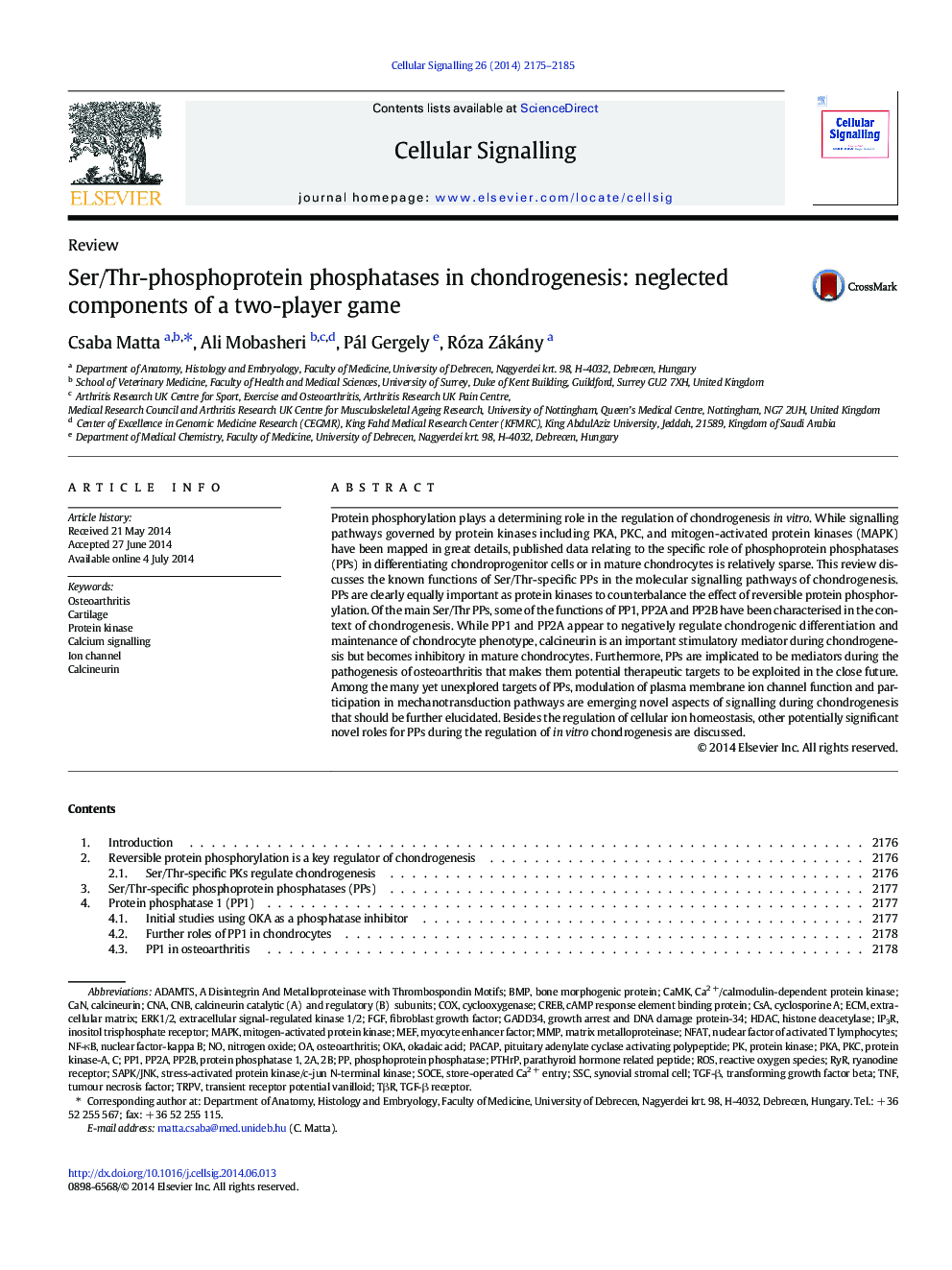| Article ID | Journal | Published Year | Pages | File Type |
|---|---|---|---|---|
| 10815194 | Cellular Signalling | 2014 | 11 Pages |
Abstract
Protein phosphorylation plays a determining role in the regulation of chondrogenesis in vitro. While signalling pathways governed by protein kinases including PKA, PKC, and mitogen-activated protein kinases (MAPK) have been mapped in great details, published data relating to the specific role of phosphoprotein phosphatases (PPs) in differentiating chondroprogenitor cells or in mature chondrocytes is relatively sparse. This review discusses the known functions of Ser/Thr-specific PPs in the molecular signalling pathways of chondrogenesis. PPs are clearly equally important as protein kinases to counterbalance the effect of reversible protein phosphorylation. Of the main Ser/Thr PPs, some of the functions of PP1, PP2A and PP2B have been characterised in the context of chondrogenesis. While PP1 and PP2A appear to negatively regulate chondrogenic differentiation and maintenance of chondrocyte phenotype, calcineurin is an important stimulatory mediator during chondrogenesis but becomes inhibitory in mature chondrocytes. Furthermore, PPs are implicated to be mediators during the pathogenesis of osteoarthritis that makes them potential therapeutic targets to be exploited in the close future. Among the many yet unexplored targets of PPs, modulation of plasma membrane ion channel function and participation in mechanotransduction pathways are emerging novel aspects of signalling during chondrogenesis that should be further elucidated. Besides the regulation of cellular ion homeostasis, other potentially significant novel roles for PPs during the regulation of in vitro chondrogenesis are discussed.
Keywords
TRPVSSCTNFFGFHDACStore-operated Ca2 + entryCaMKPACAPRyRECMPTHrPIP3RTβRSOCEGADD34OKAADAMTSTGF-βCREBmyocyte enhancer factorCa2 +/calmodulin-dependent protein kinaseNF-κBMMPCOXMEFNFATERK1/2MAPKROSSAPK/JNKcyclooxygenaseOsteoarthritisstress-activated protein kinase/c-Jun N-terminal kinaseOkadaic acidnitrogen oxideCSATransforming Growth Factor Betaa disintegrin and metalloproteinase with thrombospondin motifsCyclosporine ACalcium signallingtumour necrosis factorCartilagefibroblast growth factorNuclear factor-kappa Bphosphoprotein phosphataseExtracellular matrixmatrix metalloproteinaseBMPCANhistone deacetylasetransient receptor potential vanilloidcAMP response element binding proteinbone morphogenic proteinProtein kinasemitogen-activated protein kinasepituitary adenylate cyclase activating polypeptideparathyroid hormone related peptideIon channelCalcineurinextracellular signal-regulated kinase 1/2Reactive oxygen speciesInositol trisphosphate receptorTGF-β receptorRyanodine receptor
Related Topics
Life Sciences
Biochemistry, Genetics and Molecular Biology
Biochemistry
Authors
Csaba Matta, Ali Mobasheri, Pál Gergely, Róza Zákány,
